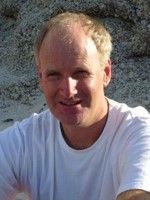Professor Richard Washington
About
Professor Richard Washington is a climate scientist and meteorologist. He is Professor of Climate Science at the School of Geography and the Environment at the University of Oxford and the Director of the Radcliffe Meteorological Station, which has the longest single-site weather records in the United Kingdom. He is a fellow of Keble College.
Professor Washington is an expert on climate change, particularly in the tropics and over Africa. His main area of research is rainfall change including droughts and floods and dust storms. He works on data from field campaigns and also on climate and weather forecast models which are our main tool for prediction. He has also worked extensively on satellite data, particularly in relation to the tracking of dust storms.
A key feature of Professor Washington's research has entailed field observation programmes in Africa which have aimed at improving weather forecast and climate models. In 2005, the Royal Geographical Society funded Bodele Dust Experiment (BoDEX) in Chad recovered the first observational data from the world’s largest single dust source. These data led to the discovery of the Bodele Low Level Jet. He was Principal Investigator of the Natural Environment Research Council's (NERC) funded consortium grant Fennec programme which focused on the central Sahara (Algeria, Mali and Mauritania). The Fennec programme included 200 hours of flying time in the UK’s Bae-146 research aircraft and ground observations on the Mali-Algerian border at Bordj Badji Mokhtar from flux tower, Lidar, sodar and radiosondes. The programme yielded the most comprehensive data set to date from the core of the central Sahara in summer.
Professor Washington was Principal Investigator of the NERC-funded Dust Observations for Models (DO4Models) project which secured mineral aerosol observations from the Makgadikgadi Pan in Botswana and Etosha pan in Namibia and the dry river valleys of the Skeleton Coast. The project ran from 2010 to 2016. He continued field observations at Etosha and the dry river valleys in Namibia as part of the NERC-funded CLARIFY campaign which also featured the operation of the Bae-146 research aircraft in the subtropical South Atlantic Ocean.
In 2018, Professor Washington secured NERC funding for a new Lidar system which was set up in Yaounde, Cameroon in collaboration with Wilfried Pokam. His most recent field campaign is the NERC-funded DRYCAB project of which he is also Principal Investigator. This project involves the release of around 800 radiosondes and the deployment of Lidar both on the DRC/Angola/Zambian border near Ikelenge and at Solwezi airport in Zambia. DRYCAB is aimed at understanding rainfall onset in the austral summer. The project is run with the collaboration of the Zambian Meteorological Department.
Aside from projects aimed at obtaining observational data in the field, Professor Washington has led the climate science component of the five- year NERC- and DFID-funded UMFULA project and the climate model evaluation component of the four-year NERC- and DFID-funded IMPALA project. He was Principal Investigator of the DFID-funded LaunchPAD project which involved climate scientists in East, southern, central and West Africa in climate model evaluation.
Professor Washington teaches climate science courses from first year undergraduate through to masters programmes. He has supervised more than 20 PhD students to successful completion. He has served on the steering panels on many science programmes, including the World Climate Research Programme – CLIVAR.
Expertise
- Climate
- Climate Change
- Climate Science
- Climate and environmental risk
- Climate modelling
- Africa
- Aerosols
- Dust storms
Selected publications
- Influence of Orography Upon Summertime Low‐Level Jet Dust Emission in the Central and Western Sahara. Journal of Geophysical Research: Atmospheres 126 (23), e2021JD035025 (2021)
- Tracing future spring and summer drying in southern Africa to tropical lows and the Congo Air Boundary. Journal of Climate 33 (14), 6205-6228 (2020)
- African low‐level jets and their importance for water vapor transport and rainfall. Geophysical Research Letters 48 (1), e2020GL090999 (2020)
- Systematic climate model rainfall biases over southern Africa: Links to moisture circulation and topography. Journal of Climate 31 (18), 7533-7548 (2018)
- Circulation controls on southern African precipitation in coupled models: The role of the Angola low. Journal of Geophysical Research: Atmospheres 122 (2), 861-877 (2017)
- Changes in African temperature and precipitation associated with degrees of global warming. Climatic change 117 (4), 859-872 (2012)
- African Climate Change: Taking the Shorter Route. Bulletin of the American Meteorological Society 87 (10), 1355-1366 (2006)
- Atmospheric controls on mineral dust emission from the Bodélé Depression, Chad: The role of the low level jet. Geophysical Research Letters 32 (17) (2005)
Media experience
Professor Richard Washington's media experience includes numerous articles in print media including the BBC and popular journals. He also has experience working in film, largely through documentary series such as the Tipping Point series through Films Media Group and, more recently, with Aurora Media Worldwide.
Recent media work
- The key figure who sells Extreme E's environment dream (Autosport, 2021)
- How Africa will be affected by climate change (BBC News, 2019)
- Meet... Professor Richard Washington (Aurora Media World Wide documentary)
- Documentary series with Sir Lewis Hamilton... on Oceans
- Documentary series with Sir Lewis Hamilton... on Why We're Racing in the Arctic
